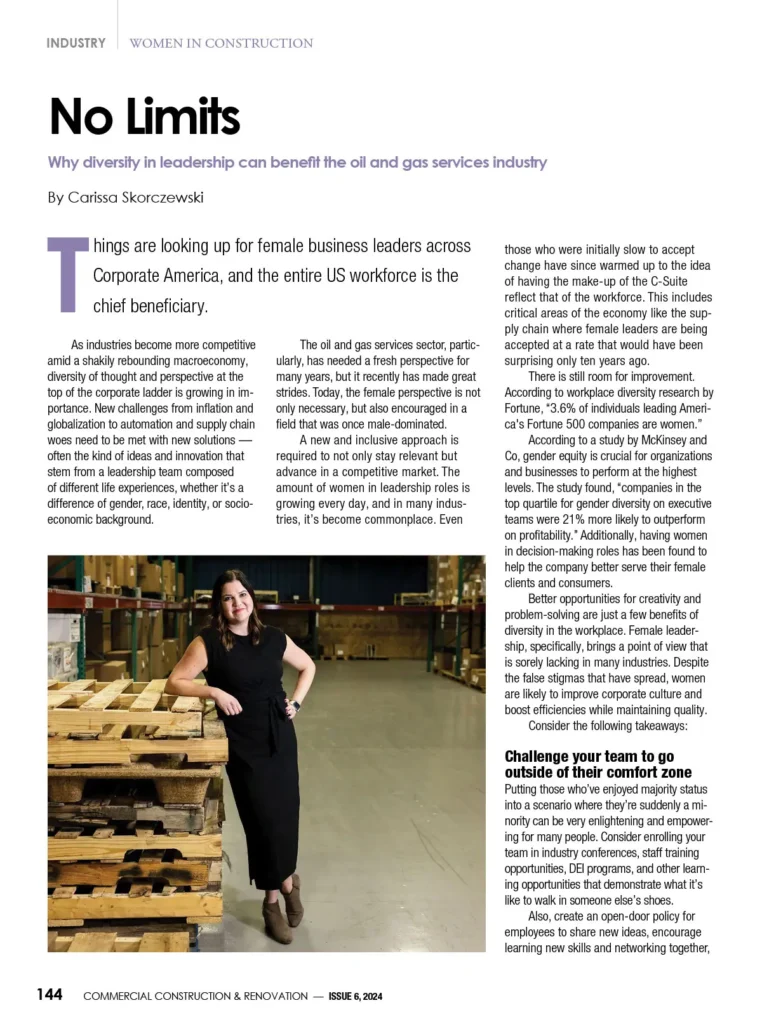The construction industry has been a vital part of modern society, continually evolving and growing over the years. However, in recent times, the industry has encountered significant challenges, such as climate change, sustainability, and declining productivity.
To remain competitive and address these issues, the construction industry is embracing digital technologies such as artificial intelligence, virtual design, cloud-based software, and big data algorithms. These technologies have the potential to revolutionize the industry and provide numerous benefits to property owners, investors, project planners, subcontractors, and workers.
In this article, we will discuss the future of work in construction and the importance of preparing for the industry’s digital transformation.
The Impact of Digital Transformation on the Construction Industry
The impact of Industry 4.0 on the construction industry cannot be overstated. With the adoption of digitization, companies can now leverage advanced technologies to optimize their workflows, streamline their operations, and enhance collaboration across all teams involved in a construction project.
From offsite prefabrication to the use of drones and sensors, and from virtual reality to data analytics, the construction industry is experiencing a transformation that is unprecedented in its history. This shift brings with it new challenges and opportunities for companies in the construction sector to become more efficient, productive, and sustainable.
The benefits of digital transformation on the construction industry
Time and Money Saved
Digital transformation is revolutionizing the construction industry, offering numerous advantages that go beyond traditional methods. For instance, BIM technicians create 3D models which enable projects to be planned precisely; these models improve decision-making, eliminate inefficiencies and delays, and reduce waste.
Automation reduces errors while speeding up production – saving both time and money that could otherwise be invested elsewhere on a project or increased profits.
Collaboration Facilitation
The construction industry is no longer restricted to local suppliers and subcontractors. Thanks to digital transformation, all stakeholders can work together in real-time, no matter their location.
Building Information Modelling (BIM) and real-time data exchange have made communication between all parties much simpler – this enhances collaboration, speeds up workflows, optimizes processes, and ultimately increases efficiency. No more working in silos – everyone can work towards a common objective with ease.
Streamline Transport Costs
As the construction industry undergoes a digital transformation, Intelligent Transport Management Systems (ITMS) are becoming increasingly essential. According to a report by Market.us, the size of the intelligent transportation systems market is expected to reach at 60.15 billion by 2032, growing at a CAGR of 7.5%.
By using ITMS, companies can reduce expenses, boost efficiency and streamline their transport management. With real-time visibility into assets, ITMS also enhances safety on construction sites by reducing accidents and collisions. Managers can identify potential hazards and take proactive measures to avoid them. Ultimately, ITMS has become a vital tool for construction firms to manage their transportation requirements while creating a secure work environment.
Improved Sustainability
Sustainability is a crucial element of the construction industry’s digital transformation. Companies are already taking action by adopting sustainable practices, using cutting-edge materials, innovative processes, and improvements in workflow efficiency.
One such digital innovation is 3D printers; this technology produces virtually zero waste and even reuses existing materials – making it an environmentally friendly alternative to traditional construction methods. By adopting sustainable methods, construction companies can reduce their environmental impact and contribute towards creating a more sustainable future.
Greater Risk Management
Effective forecasting is essential in today’s construction industry. Utilizing digital tools and data analysis, construction companies can identify potential financial risks in their projects. Smaller firms may even use these tools to manage their risks and assess performance more efficiently. By taking advantage of technological advancements in this area, construction businesses will remain ahead of the competition and reach their objectives with assurance.
Technology Trends Driving the Digital Transformation in the Construction Industry
Building Information Modeling (BIM)
BIM technology is revolutionizing the construction industry by creating highly accurate 3D models. This promotes efficient collaboration among stakeholders as well as better planning and decision-making. BIM helps reduce errors and minimize waste, saving time and money for construction projects.
Furthermore, real-time data exchange improves communication and streamlines workflows with BIM, so stakeholders can easily visualize their projects, identify potential issues, and make necessary modifications quickly. With BIM, construction companies are delivering projects faster at lower costs with higher quality than before.
Artificial Intelligence (AI)
Artificial Intelligence (AI) is rapidly revolutionizing the construction industry, giving companies an edge throughout the project lifecycle. AI applications range from design and bidding to financing and procurement of materials for construction projects; operations also benefit from this technological advance as do operations management, asset management, and business model transformation.
With AI solutions in place, contractors can address key challenges like labor shortages, cost overruns, schedule delays, and safety concerns with ease. By using data-driven solutions powered by AI technology, companies gain invaluable insights and make data-driven decisions that lead to improved project outcomes.
HD Surveying and Geolocation
High Definition Surveying and Geolocation technology have the potential to revolutionize the construction industry by improving accuracy and eliminating delays caused by discrepancies in ground conditions.
Utilizing cutting-edge techniques such as high-definition photography, 3-D laser scanning, and geographic information systems will speed up construction by providing more precise information about ground conditions. It also aids safety by detecting potential hazards before they happen. Utilizing HD Surveying and Geolocation allows construction companies to save time and money while improving their work quality.
Digital Twinning
Digital twinning is an innovative technology that provides real-time digital simulation of building projects. By integrating data related to the design, construction, and operation of the project into one digital twin, safety and efficiency in construction can be optimized. The beauty of digital twinning lies in its capacity for integrating built environment data with system, sensor, and utility data – making it invaluable for those working in the construction industry.
Cybersecurity
In today’s digital age, cybersecurity is a paramount concern in the construction industry. With so many teams and subcontractors involved in a project, protecting data and project information from cyberattacks is essential – particularly for critical infrastructure projects like nuclear power plants, emergency services centers, and government facilities. By implementing robust cybersecurity measures in construction companies’ operations, companies can guarantee that sensitive information remains private while keeping sensitive data safe from prying eyes.
In conclusion, digital transformation is revolutionizing the construction industry, offering numerous advantages such as time and money saved, simplified transport costs, collaboration facilitation, improved sustainability, and risk management.
To stay competitive and address issues such as climate change, sustainability, and declining productivity levels in this sector, companies must embrace digital transformation and prepare for their digital future.










 The 2024 virtual Men’s Round Table will be held Q4, 2024, date TBD.
The 2024 virtual Men’s Round Table will be held Q4, 2024, date TBD.












